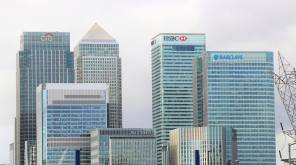

The number of people opting for fixed rate mortgages surged in the first quarter of 2017, according to Paragon Mortgages.
Some 89 per cent of mortgages introduced between January and March were fixed rate - up 6 per cent on the previous quarter and the highest figure in the 20-year history of Paragon Mortgages’ financial advisers confidence tracking report.
The data, which is taken from interviews with 200 mortgage intermediaries, shows a continuation of a long-term upward trend that has risen particularly sharply since the end of 2010, when fixed rate and tracker mortgages comprised 46 per cent and 45 per cent of all cases respectively.
Meanwhile, during the same seven-year period, tracker mortgages declined at almost exactly the same pace and in the first quarter of 2017 accounted for just 10 per cent of mortgage business - their lowest-ever level recorded by Paragon Mortgages.
Despite a quarter-on-quarter fall from 53 per cent to 48 per cent, two-year fixes remained the most popular product.
There was a big surge in the popularity of five-year fixed rates, which rose from 3 per cent to 34 per cent of all mortgages.
Although buy-to-let lending stabilised at 18 per cent of all mortgages handled, lending to first-time landlords eased to 15 per cent, while remortgaging accounted for 47 per cent of all business.
John Heron, managing director, Paragon Mortgages, said: “It is clear to see that the benefit of certainty at such low rates is continuing to drive up the popularity of fixed rate mortgages - particularly five-year fixed terms, which gained further ground in the first quarter of 2017.
“The widening in favour of remortgages over purchase transactions suggests that supply to the private rental sector may be coming under pressure which in turn may lead to higher rents.”
Mike Richards, director at London-based Mortgage Concepts Associates, said: “Most brokers I know recommend fixed rates in case the rates rise. I think with Brexit and potentially a change in government there are a lot of variables that make people think it is the way to go.
“Also, fixed rates are so low at the moment that people are probably thinking ‘why would we take out a tracker rate that is a little bit cheaper?’”
The study, by L&C Mortgages, also revealed 2.6 million households think their monthly mortgage payments are too high, as consumers face rising food and energy bills, and a hike in the general cost of living.
Meanwhile, 2.5 million admitted they have been forced to make significant cutbacks to reduce their spending in order to afford their mortgage payments.
Yet while many are struggling to get by, more than half (58 per cent) have never remortgaged for a better deal that could ease their financial burden.
In addition, more than a third (36 per cent) of homeowners are still on a standard variable rate mortgage, leaving 4 million vulnerable to a rise in interest rates.
simon.allin@ft.com



